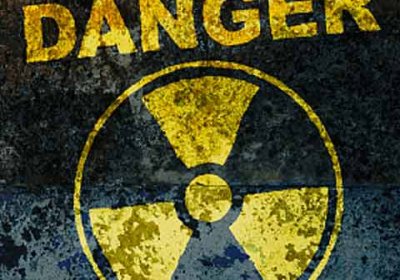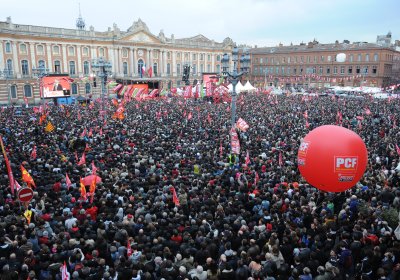More than 50 people came out to Brisbane’s Executive Building on the morning of October 29 in a fiery protest against Premier Campbell Newman’s recent decision to allow uranium mining in Queensland.
Under the banner of Queensland Nuclear Free Alliance, the protest called for a complete ban on uranium mining in the state.
Liam Flenady
In a startling but not unexpected backflip, Queensland Premier Campbell Newman gave the green light to uranium mining on October 22, lifting a decades-long ban on the destructive industry.
Police arrested and handcuffed two Brisbane-based activists, Rebecca Barrigos and Sid Zaoichi, after they set up a stall and petition against the state government’s budget cuts at a Brisbane university campus on September 21. Green Left Weekly’s Liam Flenady spoke to Barrigos about the arrests and the campaigns against austerity and for free speech in Queensland.
* * *
What were you and fellow activist Sid Zaoichi campaigning for on campus and why was security called to evict you?
Up to 1000 students rallied on August 29 at the University of Queensland (UQ) to demand fair student elections at the university.
Recently UQ has been the site of a scandal involving incumbent Liberal-aligned "Fresh" ticket, which has been accused of perverting electoral procedures and misusing union funds for their own election promotional material.
In what marks a significant shift in the balance of European politics, in the final round presidential election on May 6, Socialist Party candidate Francois Hollande defeated right-wing incumbent Nicolas Sarkozy of the centre-right Union for a Popular Movement by almost 52% to 48%.
Hollande is France's first president from the social democratic Socialist Party in France in 17 years. Sarkozy is the first president since 1981 not to win a second term.
People from all sides of politics came out on the streets of Paris in great numbers on May 1.
Ahead of the second round of the French presidential poll on May 6, it was a highly politicised May Day. In the first round on April 22, the Socialist Party's Francois Hollande beat the right-wing incumbent Nicolas Sarkozy.
The far right National Front's candidate Marine Le Pen scored a record vote of about 18%. The Left Front's Jean-Luc Melenchon took about 11% of the vote.
Presidential elections in France are a media spectacle rivalled perhaps only by those in the United States. In day-to-day life, there is also a real buzz as people argue and discuss the race on worksites, the street and, habitually, in cafes.
Streets are plastered with posters of candidates and clever activist propaganda (over the top of some street signs here, activists have put up “Impasse Sarkozy”).
The day after the Queensland election was a very dark day for the state. The unprecedented swing to the Liberal National Party (LNP) will mean huge cuts to the public sector and brutal attacks on unions.
It will mean increased environmental degradation and unnecessary, destructive development. It will mean dangerous coal seam gas will spread further across the state and coal production will rise even though Australia is already the biggest exporter in the world.
It will mean the ruin of Gladstone harbour due to dredging carried out to benefit the fossil fuel industry.
In the context of Australia’s struggling climate movement, the achievements of the Australian Youth Climate Coalition (AYCC) have been significant.
When the Murdoch press would rather report Lord Munckton’s denialist nonsense, a group that connects more than 70,000 young Australians to raise awareness and combat climate change is commendable.
However, AYCC’s politics are not without problems.
The people of Brisbane have many reasons to join the global occupy movement. Living costs are rising, while the state government is bent on privatising the state’s public services and has endorsed the expansion of the destructive and unwanted coal seam gas industry.
In line with the international day of action for real democracy on October 15, the “99%” in Brisbane will meet at Post Office square in the city at 9am. Protesters plan to occupy for as long as is necessary.
In recent debates around solutions to the climate crisis, several ideas hold the largest share of government support and media coverage. These include: green consumerism, carbon offsetting, carbon taxes, carbon trading, geo-engineering and carbon capture and storage.
But do these “solutions” take, as their frame of reference, the full extent of the problem? Here are some reasons to be doubtful.
Green consumerism is one variation of the argument whereby “your dollar is your vote”.
After the riots in Britain, magistrates were advised to “disregard normal sentencing” when examining the cases of people involved. The result of this is a rapid rate of convictions and a complete lack of proportion between the crimes committed and the sentences delivered.
- Previous page
- Page 3










